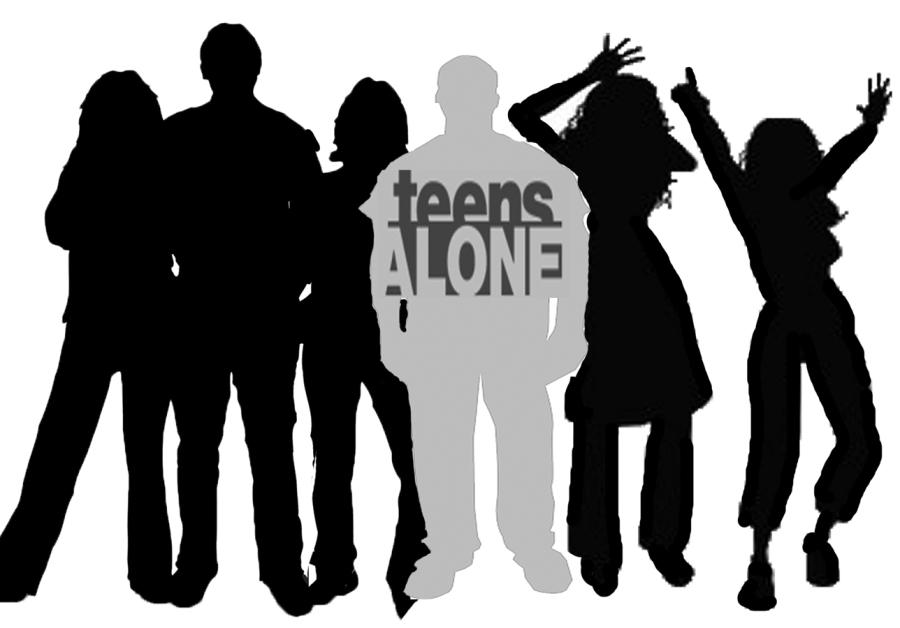Teens Alone opens in Hopkins
Oct 30, 2014
On Oct. 30, Teens Alone had an open house for The 915 in Hopkins. The 915 is the first homeless drop-in center for teens in the west metro.
According to DoSomething.org, 39 percent of the homeless population in the U.S. is 18 years old or under.
Teens Alone is a non-profit organization dedicated to helping teens between the ages of 12 and 21 who are have a drug problem, running away from home, homeless, or are suffering from depression and loneliness.
While Teens Alone focuses more on giving counseling to teens who need support, the 915 will offer young adults between the ages 16 and 21 health services, assistance in finding jobs, and a shelter as soon as they arrive on the site.
“What we’re offering at the 915 is free counseling for kids and young adults who want to talk to someone. We also offer case management, housing assistance, working with some of the resources in the area,” said Lawrence Nutter, counselor at Teens Alone.
Since 1990, Teens Alone has helped more than five thousand of the city of Hopkins’ teens and their families. Teens Alone states on their website that unaddressed personal issues such as family and school conflicts can lead to dropping out of school and homelessness. Because of this belief, Teens Alone is committed to helping teens across the Twin Cities by providing free professional counseling and a host home program.
“Teens Alone doesn’t judge. We aren’t there to tell people how to behave. I see it as being a second pair of eyes. I tell kids that they do have strength and are doing so much, even though there isn’t that much support,” Nutter said.
Ms. Shanna Jadwin, HHS guidance counselor, believes that Teens Alone is a phenomenal resource.
“I think that we are incredibly lucky to have that resource available free of charge to our students, and I am personally very grateful that we can give [this program] to our kids,” said Jadwin.
“On average, there are about 4,000 students that are homeless in the metro area. Teens Alone defines homelessness not just as kids living on the streets, but as kids that are hopping from couch to couch because the situation at home isn’t so great. [Teens Alone also defines homelessness as] kids staying in a place that is only temporary,” Nutter said.
At HHS, Lisa Ashley is the advisor of Project Focus, a club whose mission is around teen homelessness. Ashley believes that a positive school environment can be one of the few constants in a homeless teen’s life.
“There are support staff here that can help. [Homeless teens] can get meals and they can get fed. They can even get clothing,” Ashley said.
Ashley added that every year Project Focus reaches out to people who were willing to donate basic amenities such as clothing and bottled water. Once the donations are collected, they are put in Ziploc bags which were then distributed to the homeless.
Alexis Dorfman, Ellie Maag, and Katie Dorsher, all seniors, are the student leaders of Project Focus. Dorfman believes that though teen homelessness can be a hard topic to talk about, it’s important that the word gets out there.
“What if it was you or someone you knew that was homeless? It would seem more important to you then. That’s why Project Focus works [to help] the homeless. Even with a small group of people, we believe we can make a difference in our community,” Dorfman said.
According to Dorfman, Project Focus organized a book drive in the beginning of the year for homeless teens.
“We collected a ton of books that teens that could use for school or just wanted to read for fun. We’re planning on giving away the books to an organization that focuses on homeless teens,” Dorfman said.
While Project Focus and similar service projects provide basic amenities for many homeless people in the West Metro, the 915 is designed specifically to go beyond the necessities, and provide free counseling and housing for homeless teens. Nutter explain that talking with teens and learning about their lives is the best way to improve a homeless teen’s situation.
“I talk with students and explain to them what I do. I also work with families where the teens feel like they’re not being heard. I talk to parents and find out that they also feel like they’re not being heard. Then, I mediate discussions and [eventually both parties] realize that they care about each other.” Nutter said.
Jadwin credits Teens Alone counselors like Nutter for being able to talk with teens who are going through tough times.
“High school can be a time where students are figuring out who they are. There are a lot about this transition that calls for support. Anyone can benefit from talking about their problems,” Jadwin said.
Nutter hopes that teens who find refuge in Teens Alone don’t feel obligated to owe him or the other counselors anything in return.
“I get thank you so much, I owe you,’ but [Teens Alone] is here to help you. I can speak for all the counselors at Teens Alone when I say we love doing what we’re doing,” Nutter said.
Because of his past, working with homeless youth is especially rewarding for Nutter.
“I grew up with hardships in my life, and I didn’t really have a lot of people that I could talk to about it. Knowing that there are people like me that are helping teens through some of the same hardships that I had is a great. Knowing I could be changing someone’s life is the best part of the job,” Nutter said.

